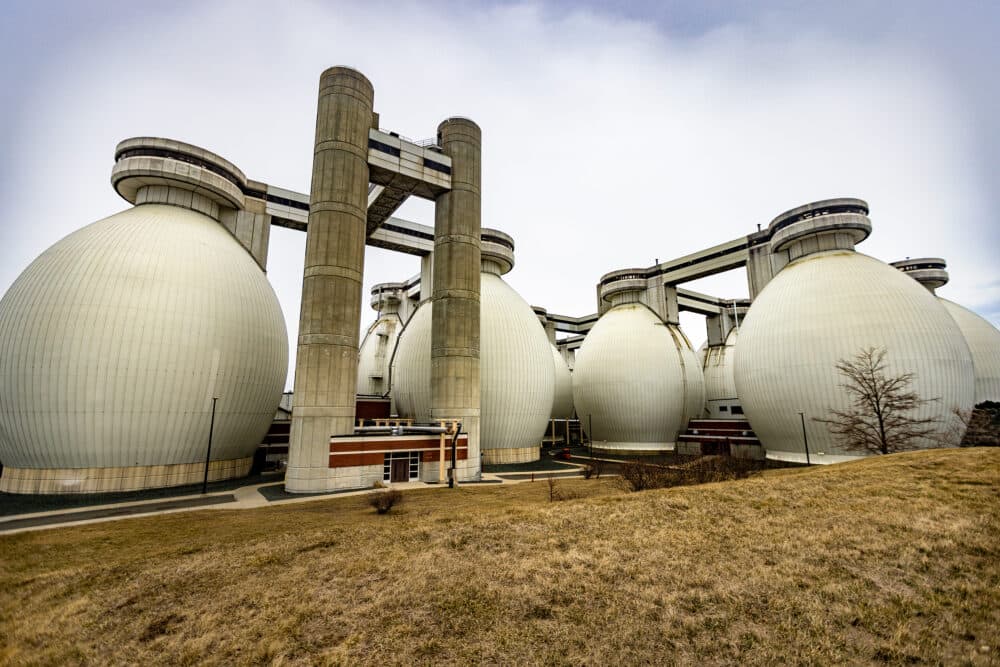Environmental advocates are renewing calls to ban the use of sewage sludge — or “biosolids” — as fertilizer, after an Environmental Protection Agency draft report found there may be health risks associated with exposure to toxic PFAS “forever chemicals” in the sludge.
PFAS are a class of chemicals widely used in both industry and consumer products. The chemicals enter wastewater through sinks, washing machines, stormwater and industrial processes. Wastewater treatment plants do not remove PFAS; much of it ends up in the sludge, which is often recycled into fertilizer.
The Deer Island Wastewater Treatment Plant, which manages sewage from 43 communities in Greater Boston, produces biosolids used as fertilizer in almost 20 states, including Massachusetts, New York and Pennsylvania.
Deer Island regularly tests for — and detects — PFAS compounds in its biosolids, according to the Massachusetts Water Resources Authority. Nationwide, about 60% of sewage sludge ends up on farmland or other land applications, according to the EPA.
“Sludge has no business being spread on any land and when it is, it triggers a serious health crisis for farmers and their neighbors,” said Laura Orlando, a civil engineer and senior scientist at Just Zero, a nonprofit focused on waste. “We need an immediate moratorium by the EPA that stops the land application of sewage sludge nationwide.”
A spokesman for the MWRA said the organization is reviewing the EPA report “to better understand the contents and basis of the assessment.”

Currently there are no state or federal rules for PFAS in biosolids, and industry advocates argue that recycling the sludge into fertilizer is more environmentally-friendly than sending it to a landfill or incinerator. The EPA draft report found health risks associated with all three options.
A 2024 report from the Massachusetts Department of Environmental Protection found that restrictions on recycling sludge into fertilizer “represent a looming massive disruption to the management of Massachusetts sludge and would lead to increased greenhouse gas emissions from longer hauling and significant cost increases” to water customers.
“There aren’t easy solutions when it comes to PFAS,” said state Sen. Julian Cyr, a Democrat who represents the Cape and Islands District. Cyr said he’s focused on eliminating the sources of PFAS. He co-sponsored legislation last year aimed at addressing PFAS in consumer products, food packaging and fertilizer. The bill fizzled before a vote, but Cyr expects to refile it this year.
“We’re hopeful we can get this comprehensive legislation across the finish line and onto the governor’s desk this session,” he said.
PFAS chemicals have been linked to numerous health problems, including high cholesterol and kidney cancer. The EPA draft assessment will be open for public comment for 60 days.
link

